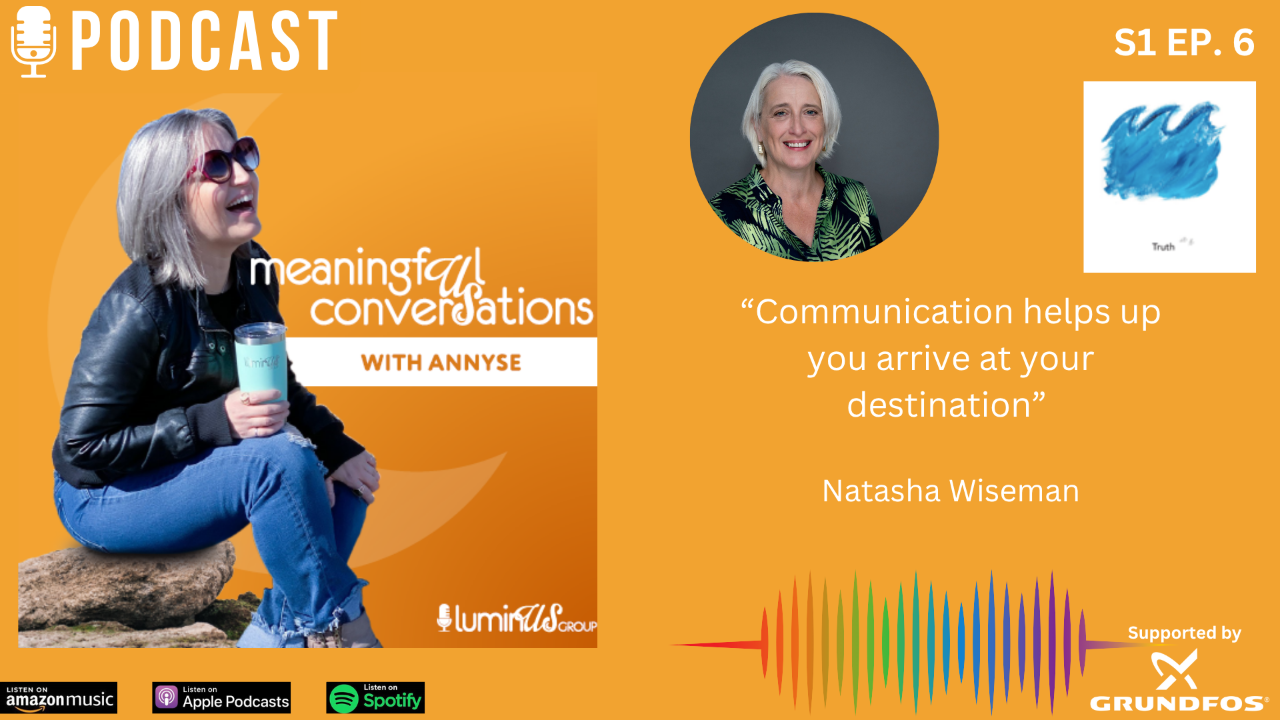Telling the Truth About Water: A Conversation with Natasha Wiseman

In a world facing growing uncertainty—from climate disruption to strained infrastructure and shifting regulations—there’s one resource that cuts through every boundary and touches every life: water.
Recently, I had the privilege of speaking with Natasha Wiseman, founder of Wise on Water, a strategic communications agency dedicated to the water sector. Natasha also created Make Water Famous, a not-for-profit platform aimed at bridging the gap between water experts and the wider public. Through storytelling, Natasha and her team are building awareness of the water crisis, helping people understand the complex realities behind our most essential resource.
Why Storytelling? Why Now?
Our conversation unfolded around communication, collaboration, and community—three things Natasha believes are central to solving water challenges. She shared how the word “truth” resonates deeply with her work. As someone who has spent her career telling stories about water, truth isn’t just a value—it’s a practice. It's about getting to the core of what's really happening, both in the industry and out in the world.
Natasha pulled a card during our talk labeled “Truth,” illustrated with waves—a perfect reflection of her watery world. And the truth is, in the UK where Natasha is based, water has become headline news, largely due to pollution and failing infrastructure. But amidst this negative coverage, something else is happening - people are waking up. They care. They’re asking questions. They want change.
And that gives her hope.
The Power of Connection
During the pandemic, many people discovered their local rivers and streams—only to realise that they weren’t as clean or cared for as they’d imagined. But that proximity sparked connection. And from connection comes clarity.
This groundswell of awareness has had real-world impact. The UK is on track to double water investment in the next five years, fuelled by public pressure and a desire for better systems. But to Natasha, investment isn't enough—we also need communication. We need to make sure that communities understand the choices being made, the risks being taken, and the opportunities ahead.
So, Why Aren’t We Further Along?
“Why are we still talking about water reuse as if it's new?” Natasha asked. Places like Singapore, California, and Namibia have been leading on this for years. So why hasn’t the rest of the world followed?
Her answer is simple, but powerful: communication.
Water is a deeply technical industry, full of smart, dedicated scientists and engineers. But communication skills are often undervalued—both externally and within organisations. Too often, communications are seen as an add-on, not a strategic function. “It’s about being right,” Natasha says. “But we also need to be heard.”
When communication is brought in too late, the result is confusion, mistrust, and missed opportunities. But when it’s woven in from the start, it becomes the thread that connects teams, aligns stakeholders, and brings the public along for the journey.
If Natasha Had a Magic Wand...
Her wish? That every project—every single one—starts with a communications person at the table. Someone who helps map out internal and external messaging. Someone who makes sure the story is clear and that everyone involved understands their role in telling it.
Storytelling aligns teams, unites collaborators, and helps us navigate uncertainty together so when things get tough (and they always do), it’s the shared story that keeps everyone focused on the vision, not the fear
Let’s Start a Ripple Effect
We need more spaces for communications professionals to gather, share, and learn from one another—especially in technical industries like water. Natasha used to host a gathering called The Watering Hole in southeast England for water comms professionals. Those conversations were different, she says—more honest, more creative, more connected. It’s time to revive that kind of community.
Because at the end of the day, how we take care of water reflects how we take care of ourselves. And how we communicate about water shapes how we act.
So, let’s start communicating with clarity, compassion, and courage. Let’s make water famous—for all the right reasons.
Want to learn more about Natasha’s work?
Visit makewaterfamous.com and join the conversation.
